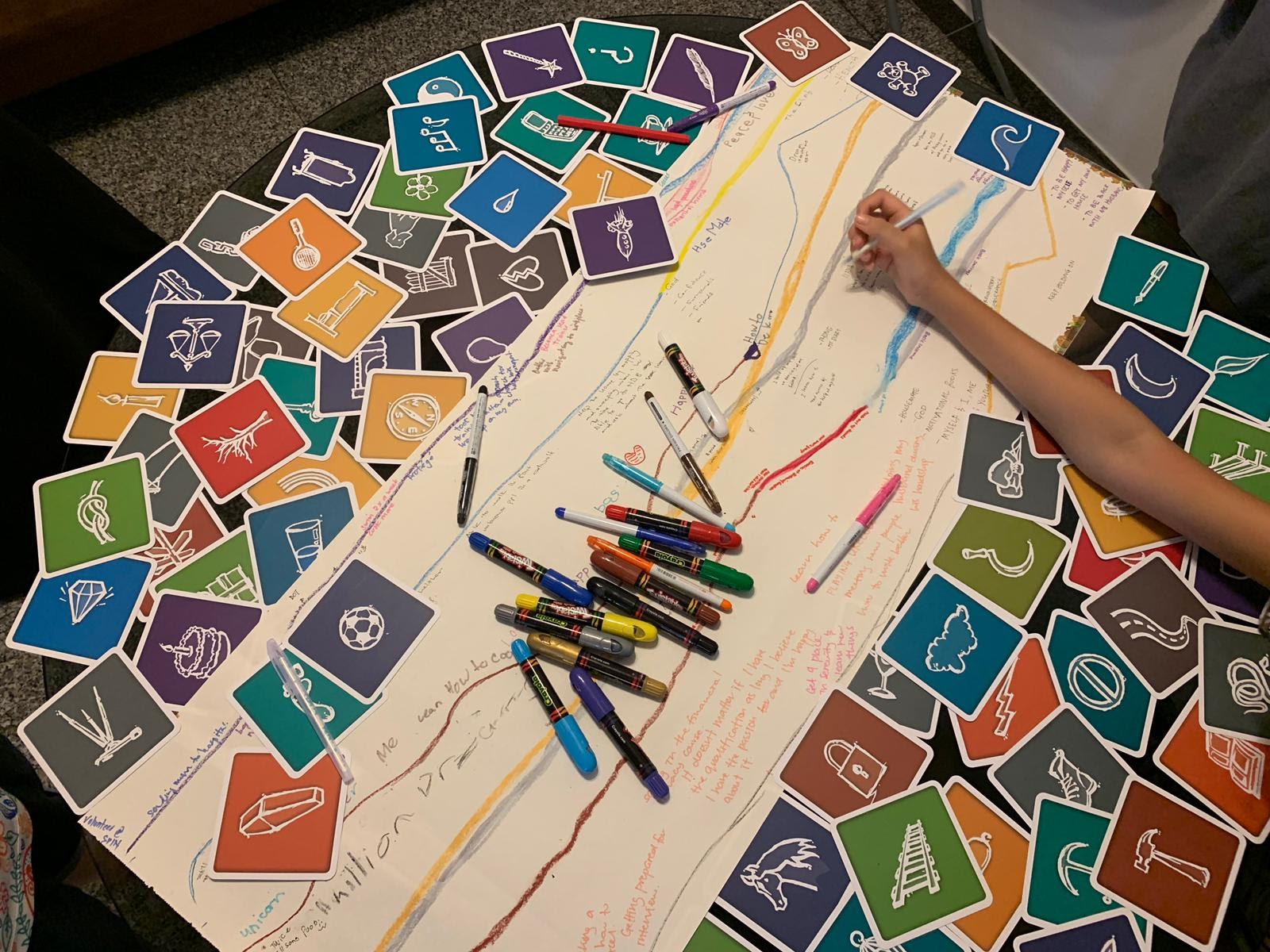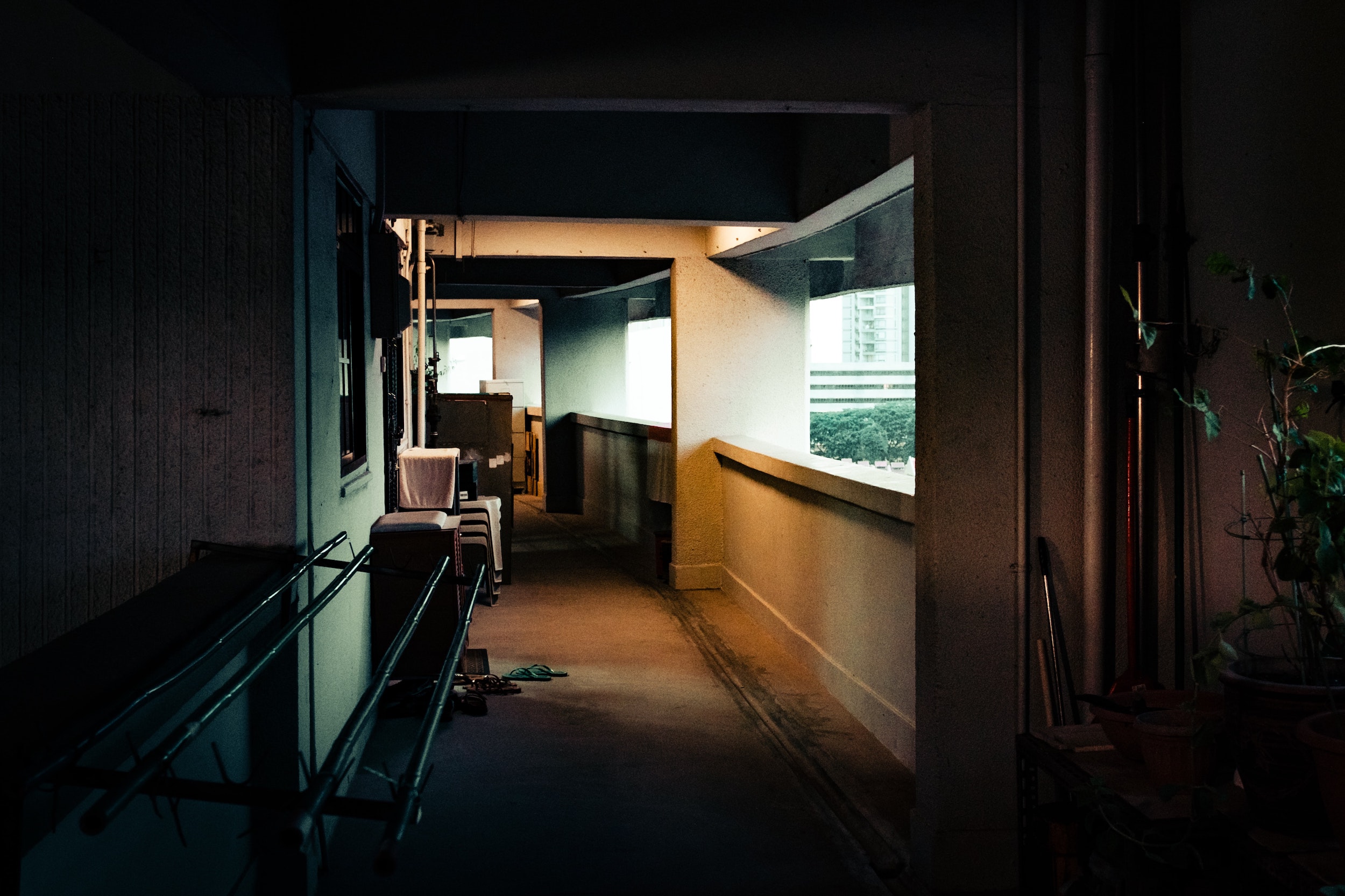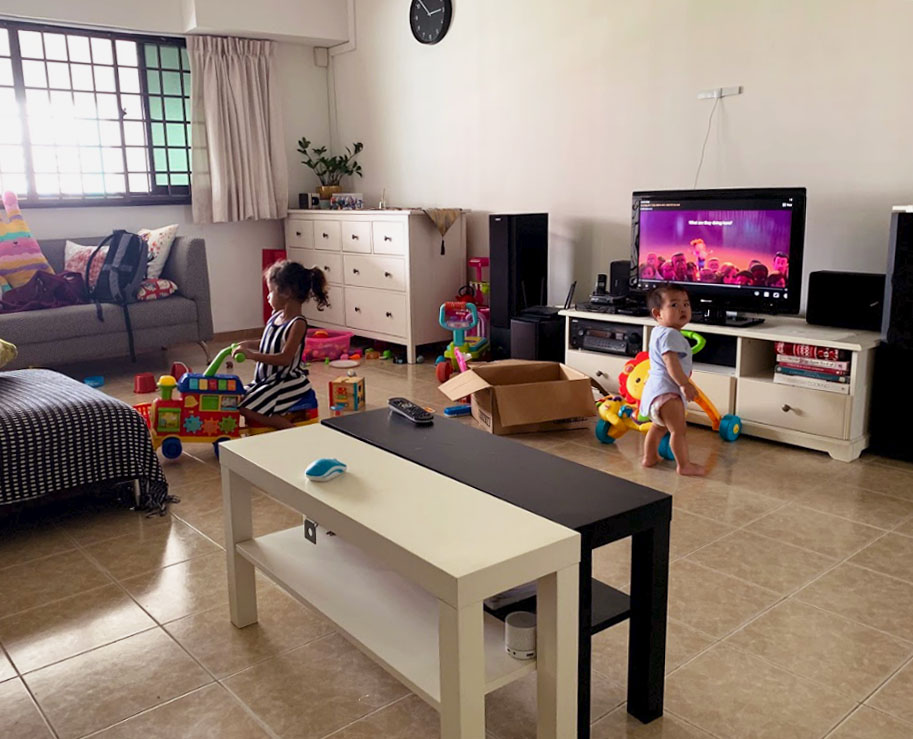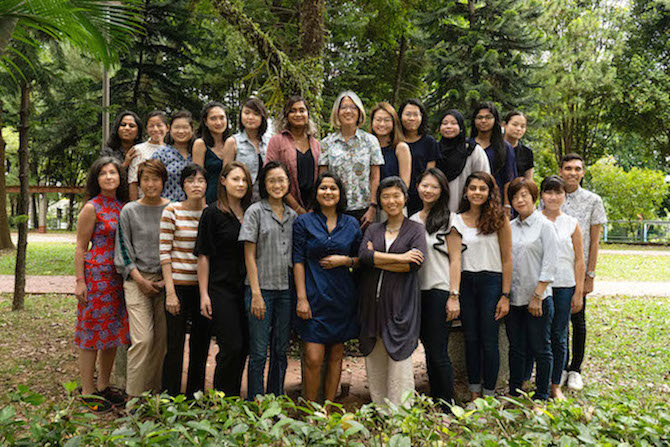Before arriving at AWARE's women's shelter, Jessica (not her real name) suffered at the hands of an abusive husband.
Finding that her income was too high to qualify for public rental housing, but too low to afford open market rentals, she continued to stay with her violent spouse.
Now, the shelter provides a much needed reprieve and an environment where both Jessica and her children are safe.
However, in about three months time, in July 2021, AWARE's shelter will close its doors.
As it is, six women and eight children are still staying at the shelter and will have to find new accommodation and living arrangements.
Known as the Support, Housing, and Enablement Project (or S.H.E. for short), the shelter is approaching the end of its planned two-year donor-fueled existence.
A longitudinal research project at its core, S.H.E. saw the women's advocacy group trying to find out if housing stability for single mothers and low-income women would have an impact on other aspects of their lives.
"Our research hypothesis is that if we provide our families two years of stable housing, they would improve without much intervention on our part," said Elizabeth Quek, the program's manager — or in her words "House Mother".
In other words, AWARE and Quek were betting that when given the conditions to thrive (such as having a roof over one's head), previously beleaguered women would naturally move towards finding solutions to their problems.
A seasoned social worker, the 35-year-old was understandably concerned for the families in the shelter that had yet to find permanent living arrangements.
"I get kind of worried — I mean all of us get worried with July approaching so quickly," she said.
 The S.H.E. Project Shelter provides a stable environment for single mothers and their children to get back on their feet. The residents are also interviewed every quarter and attend transformational support programme. Image courtesy of AWARE.
The S.H.E. Project Shelter provides a stable environment for single mothers and their children to get back on their feet. The residents are also interviewed every quarter and attend transformational support programme. Image courtesy of AWARE.
"It just made sense for me to be a social worker"
Quek first decided to become a social worker when, as student at the National University of Singapore, she had to pick a major.
Social Work stuck out to her in large part because of a mentor she had growing up who happened to be a social worker.
He had counselled her when as a Primary Six student she was followed and assaulted by a stranger, and supported her as she came to terms with the traumatic event.
"My mentor was just there for me during the whole process, checking in on me," recalled Quek.
It was a showing of empathy and openness that was rare back in those days; "I think especially because so many years ago, people didn't know how to respond — my family members didn't know how to respond."
With that experience very much in mind, Quek decided that "it just made sense for me to be a social worker".
The realities on the ground
Yet, Quek quickly realised that any lofty ideas she had going into the job were erased by the realities of being on the ground.
Working at a family service centre in a low-income neighbourhood, Quek remembered being exposed to an array of unfortunate circumstances and a smorgasbord of challenges.
She told me of clients with abusive partners while others were beset with mental health problems. Quek even lost a client to pneumonia, a situation she described as an "injustice".
"Even when we've decided to become a social worker you're constantly asking yourself, do I still want to do this?
The stories that we hear regularly, the injustices that our clients face, it can really take a toll on you... you use a lot of yourself."
Social work isn't as simple as providing help for the less fortunate; there are often many hoops to jump through and systemic barriers to overcome before aid can be administered.
For instance, single parents have to dispose of their marital flats in order to be eligible for HDB housing assistance schemes. This is complicated by the fact that divorce proceedings can sometimes be long and drawn out.
"It should not be so difficult as it is now for clients to get the resources they need," said Quek.
 Image by Christian Chen via Unsplash.
Image by Christian Chen via Unsplash.
"Easy to be judgmental"
Having terms and conditions attached to various types of support also means that social workers can hold a certain amount of authority over the people they are trying to help.
"If you're running a shelter, it's a roof over their head; you have a lot of power and control. You can tell people what to do, if that makes sense," explained Quek.
"I think as social workers, it's easy to be judgemental."
Eventually, Quek fell into a mode of thinking she described as "pathological", where she viewed the problems of her clients too simplistically.
"So at some points I would expect people to follow the directions that I think are good for them, or the goals that I have set up for them.
I would get really irritated when people were not punctual... sometimes the things I would do were kind of strong."
It wasn't till she was five years into her job that Quek experienced something of an epiphany regarding the way she was going about things.
While attending a course to further her skills as a social worker, she started to do "a lot of reflection" on her work:
"I started thinking about how some of these things that we're doing when we're trying to help people is actually harmful. I started to think that some of the ways I was doing things — telling people what to do — was completely disrespectful."
In particular, she remembered one occasion where she asked a woman pointed questions about her marriage, only to realise afterwards how out of line it was.
"I did apologise to her for doing that. But this is just an example of some of the harm that we can do when we think that our perspective is correct."
Families as the experts of their own lives
In many ways, the S.H.E. Project Shelter represents the antithesis of this early version of Quek.
The seed of the project was planted by an AWARE report published in 2017, accompanied by a press release titled "Single parents need more inclusive policies on public housing".
The study, which involved in-depth interviews with 55 single mothers, found that 95 per cent of interviewees had faced problems when seeking public housing.
Families subsequently experienced stress, uncertainty, and financial pressure, with many reporting that they struggled with overcrowding and tension in their relatives' homes, as well as frustration with the processes they had to go through to receive aid.
After the report was published, AWARE was contacted by a concerned individual who wanted to help and together, they decided to embark on the two-year project.
 The interior of one of the apartments in the S.H.E. project. Image courtesy of AWARE.
The interior of one of the apartments in the S.H.E. project. Image courtesy of AWARE.
The principles underpinning the project, as spelled out on AWARE's website, include:
- The families are the experts of their own lives
- Community support is critical
- Services will be provided on a non-judgemental basis
They are adhered to with the aim of giving single mothers a stable living condition and building their confidence, capacity, and eventually a path towards both financial independence and permanent accommodation.
Once they are part of the programme, the women and their children are provided with everything they need — payment of the apartment's rent and utilities included — except food; the residents are only required to pay a very low monthly fee.
When you consider that many women who decide to leave their abusive husbands often have to contend with a lack of resources and nowhere to go, its easy to see how having a place like the S.H.E. shelter would be useful.
And while being a victim of violence is not a precondition for moving into the shelter, most of its residents have experienced some sort of abuse — either from their partners or their relatives.
A gentler touch over two years
In March 2019, Quek was drafted in to manage the project, hosting a total of 13 women and 14 kids in four apartments.
Other than its guiding principles, S.H.E. sets itself apart from regular shelters by offering a tenancy of two years (most shelters typically provide housing for three to six months).
 Quek (top row, third from the left) with the rest of the AWARE team. Image from AWARE.
Quek (top row, third from the left) with the rest of the AWARE team. Image from AWARE.
Describing her management of the project, Quek said that she tries to be more respectful of the women's wishes and desires, letting them figure things out on their own.
"But still we have found, through our research, two years is a bit short."
Though some of the women managed to attain permanent housing during their time at the shelter and move out, others remain bogged down by issues such as pending legal cases (where divorce proceedings may be involved).
One area that shelter residents have seen a marked improvement in is employment.
According to AWARE, most of the residents have either found jobs, moved into full-time positions from part-time ones, or shifted to better paying jobs.
The average incomes of the residents also rose from S$790 to S$1,050.
This, Quek believes, happened due to the gentler touch she's adopted with the residents.
Instead of setting out directions and goals for her clients like in her early days of social work, these days Quek typically spends her time with the women talking about life in general.
"(I'll ask them) what have they achieved? Usually they'll have many good things to share with me, so we celebrate all these things,
But then definitely we'll go into the housing issue, and then they'll share with me what they have tried to do."
On her part, Quek will also assist the residents with writing advocacy letters to the relevant authorities such as HDB.
Trusting the residents
However, with July fast approaching, I asked Quek if she had to resist the urge to break the shelter's principles and return the more pushy and pathological approach.
"I would say I'm not perfect," she admitted.
"I mean there's always that worry about, okay, if you don't follow up closely, if you don't push the client will they actually change?"
Quek adds that for those who provide aid, there's always a temptation to push clients even though they know that it's counter-intuitive.
"But the whole intention of this program was meant to be more hands-off, really trusting in people and their initiative."
The social worker told me of one story from the S.H.E. shelter that has helped thus far to allow her to sustain that trust.
It involved a single mother of five who arrived at the shelter in 2019
She hadn't worked for a long time and with five children to care for, Quek was apprehensive that being forced to hold down a stable job might be too much of a shock to the system.
"I did check in with her about her motivation, what were her hopes and things like that... but at the back of my mind I was really worried."
But Quek's fears were unfounded.
The woman managed to find full-time employment one month after arriving at the shelter, to Quek's surprise. One and a half years later, the woman is still engaged in a stable job and doing well.
"I found that when I trust the residents, they ultimately go and do whatever is needed."
You can support AWARE's S.H.E. shelter here.
Stories from the City of Good is a series on ordinary Singaporeans giving their best for others and inspiring each other to become a Singapore that cares. This is a collaboration between Mothership and the National Volunteer and Philanthropy Centre.

Top image by Christian Chen via Unsplash and courtesy of AWARE
If you like what you read, follow us on Facebook, Instagram, Twitter and Telegram to get the latest updates.
